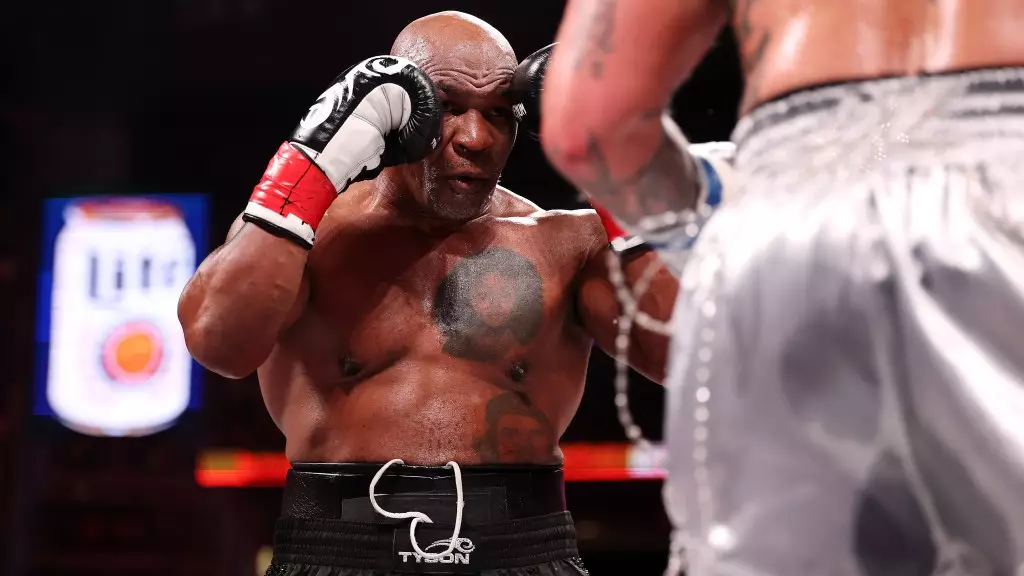Mike Tyson’s matchup against Jake Paul garnered significant media attention, but perhaps one of the most talked-about moments wasn’t their fight itself, but rather Tyson’s bizarre behavior of repeatedly biting his own gloves. This unusual action sparked curiosity and speculation among commentators during the event, leading to discussions that highlighted both its significance and its historical context in Tyson’s career.
A Surprising Yet Familiar Behavior
Throughout the fight, ringside commentators Mauro Ranallo, Roy Jones Jr., and Rosie Perez couldn’t help but focus on Tyson’s glove-biting habit. Jones made frequent references to it, questioning whether Tyson was experiencing any issues with his mouthpiece. Ranallo provided reassurance by explaining that Tyson’s glove-biting is not new; it has been a characteristic behavior throughout his boxing career. This brings to light the importance of understanding such quirks in athletes, as they can provide insight into their psychological states or coping mechanisms during high-pressure situations.
While Tyson casually acknowledged this behavior in a post-fight interview, labeling it as a “habit” and “fixation,” it raises interesting questions regarding the psychological aspects of professional sports. Athletes often develop particular habits that serve as comfort mechanisms during intense moments. For Tyson, biting his gloves could function as a way of managing adrenaline and anxiety that comes with being in the ring. It recalls memories of his notorious incident with Evander Holyfield, where he bit a piece of Holyfield’s ear during a match, further cementing biting as a recurrent theme in his fighting experience.
The phenomenon of athletes exhibiting peculiar habits isn’t exclusive to Tyson. Many sports figures have their own idiosyncratic behaviors, from tennis players bouncing balls a specific number of times before serving to golfers lining up their putts in a unique style. These behaviors can be attributed to routine and ritual, which many athletes believe help them focus and perform better. Tyson’s glove-biting can thus be contextualized within a broader pattern observed across different sports, where individuals find solace in the habitual.
Tyson’s glove-biting not only adds a layer of intrigue to his public persona but also serves as a reminder of the psychological complexities athletes face. It is important for fans and commentators to recognize that such unusual behaviors can stem from deeper psychological underpinnings that reflect an athlete’s mindset during competition. While the fight against Jake Paul ended with a unanimous decision in favor of Paul, the lasting takeaway from the event may not be about the match itself, but an exploration of the peculiar yet fascinating habits that define Mike Tyson as a fighter—and as a unique figure in the world of sports. Understanding these behaviors enriches our appreciation of the sport, prompting deeper discussions around the mental and emotional facets that influence athletic performance.

